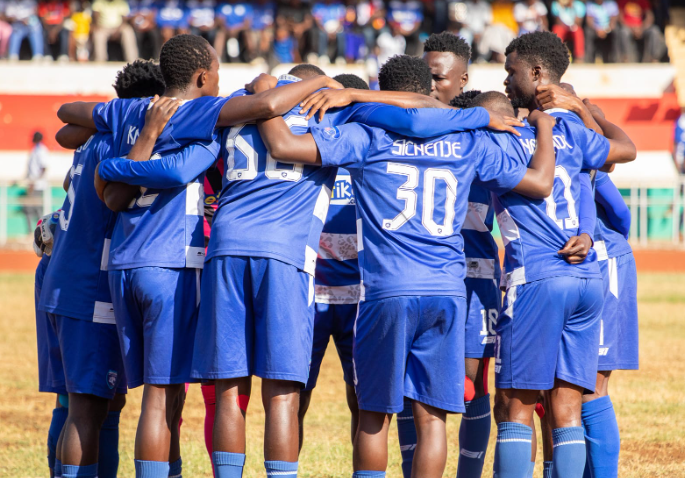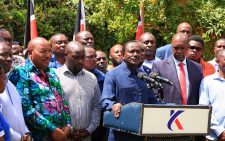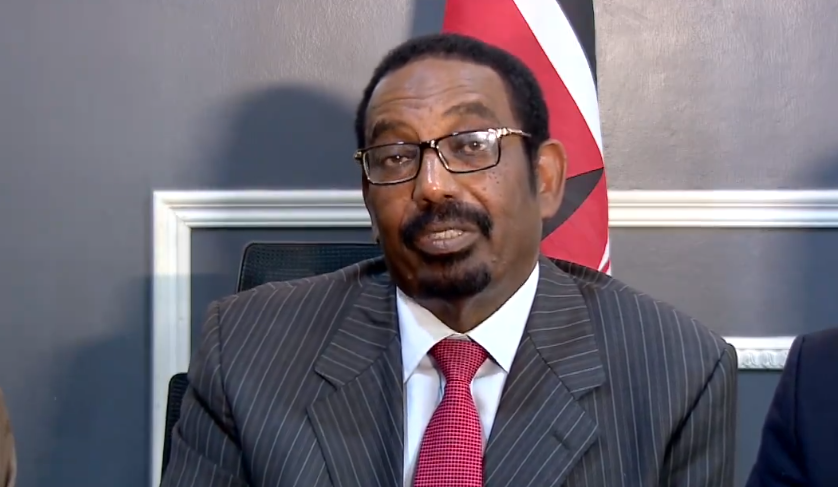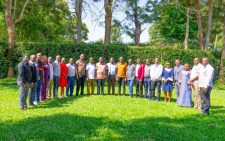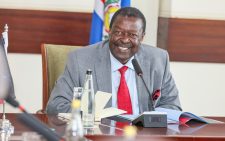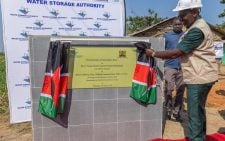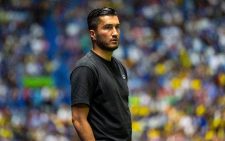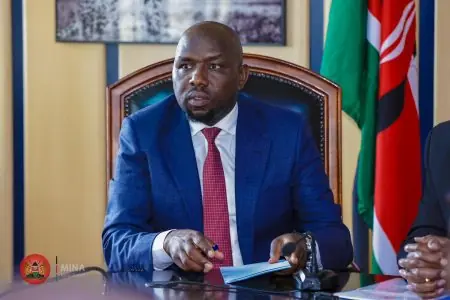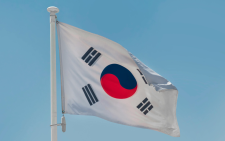Journalist per excellence takes final bow
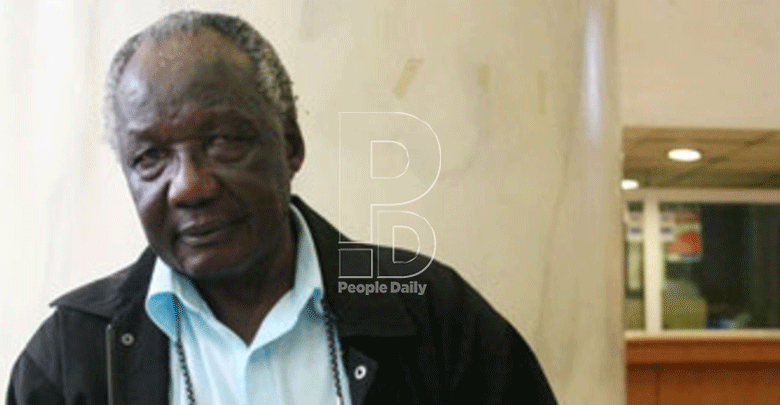
The story of Philip Ochieng’s contribution to journalism in Kenya is too important to wait for the annals of journalism to be written before he can be acknowledged. Philip – or PO – as journalists knew him, trained more than one generation of scribes, in the beginning with a heavy hand and a harsh tone but in his later and mellower years, with a fatherly guiding attitude.
A legendary journalist in every sense of the word, Philip, in his day as Managing Editor was a Machiavellian voice; loved and feared in equal measure.
Legend has it that he controlled the newsroom with a strong will and a firm hand, especially in his days at Kenya Times, the paper published by the then ruling party, Kanu.
When I met him in 1998, when he was consulting editor at eXpression today, the journal of human rights, democracy and media then published by the Media Institute, he was an affable man, wearing his glasses around his neck except when he was reading. At the time, I was a rookie journalist working as an assistant editor at the monthly.
Every comma mattered
I remember that he could not edit from the computer, though we had Mackintoshes that looked like teardrops.
Articles had to be printed and he went through each page with a black pen in my time – others in different media houses remember a red one – and we had to input his corrections… manually. To Philip, every comma mattered.
His aversion for driving was also legendary. Those who knew him say that because he loved his whisky – as many journalists do – he avoided driving, a rare discipline in the profession.
In the 90s, he drove around in a white nissan, supposedly a gift from President Daniel arap Moi.
Newsroom legend had it that it was one of the gifts the then president, now deceased, bequeathed him when he left Kenya Times.
When I met him, however, he had kissed his tot goodbye, so I did not understand why he had not taken up driving.
He loved books. Indeed, he did pen three himself – The Kenyatta Succession, which he co-authored with former Nation News Editor Joseph Karimi (also deceased) and I Accuse the Press.
His third book, he told me, was lost forever when he inadvertently deleted it in one of his failed attempts to use a computer.
At the time, Philip, an avowed Kenyan Egyptologist, a self-confessed religious agnostic and a proud technophobe, was writing prolifically about Jesus and Egyptian religion, mostly in The East African and also in the Sunday Nation.
His were compelling articles, worth ossifying in a book as they were published, and I believe they were singularly responsible for the papers’ high circulation at the time. He was the reason many of us ensured that we read the two papers.
For me, he was the only journalist I know to ever run two columns – one in the Saturday Nation, a paper I edited for two years – and the other in the Sunday Nation.
Con the minister
Having studied linguistics at the university, I rarely read his pieces in the Saturday Nation except when duty demanded, although I must confess there were days he sent the same article more than once.
However, I religiously read his Sunday Nation column, even at its most esoteric. Part of the reason was that in our early encounters, he had humoured me by saying that I had seen “quite a few books”.
Having never invested all his life, he solely depended on the two columns for his upkeep and a now retired senior editor at the Nation once told me that he gave Philip the two columns “to keep him alive”. To this extent, therefore, he was both an icon and a cautionary tale.
What many do not know is that during the 2007-2008 election violence, Philip, who was then living in Kabete, became an internally displaced person – one of the 650,000 affected by the violence that preceded and followed the disputed presidential election of December 2007.
This was in itself a great irony considering that he had studied at Alliance High School and Kiambu ought to have regarded him as one of its illustrious sons because it was there that his worldview was shaped.
Philip, as some already know, was also a contemporary of Barack Obama Senior, father of former US President Barack Obama.
Indeed, like the senior Obama, he was a beneficiary of the Kennedy Airlifts that were masterminded by Tom Mboya, who was later assassinated in 1969, just like JF Kennedy had been six years earlier.
Unlike Obama, however, Philip never completed his university education as he reveals in his biography, The Fifth Columnist, authored by Elizabeth Gitonga and published by Longhorn Publishers.
Like the senior Obama, however, he sired a daughter during his sojourn in America, and she travelled to Kenya a few years ago looking for dreams from her father, as Barack Obama had done earlier.
To his credit, Philip encouraged his brother, Robert Otani, Otani’s son and others in the family to join the second oldest profession, with Robert working as a sub-editor in various newsrooms, including at the People and the Nation, and his son having his first stint at The People Daily.
Others in the family also made their way into the newsroom. Each has made their mark in journalism.
These were in addition to the many young people he inducted, trained and hurt in the process of making them better journalists throughout his long and varied career, including in his last fulltime stint as quality editor at the Daily Nation.
One of the most curious paragraphs in Gitonga’s biography is where Philip describes himself as “an entrepreneurial idiot” because he never took the trouble to invest throughout his career.
This was a damning self-appraisal for a man who was a powerful political player in the Moi days and who was named in the judicial inquiry into the Goldenberg Scandal, led by Justice Samuel Bosire.
When he appeared before the commission accused of having received Sh3 million from Goldenberg architect Kamlesh Pattni, Philip said he was only a conduit and that the money was never meant for his personal benefit.
Philip, who once said his name derived from the Greek name Philipo or Philihipo, which means ‘man who loves horses’ was not known for life on the first lane.
He was a decent man and a great journalist for sure – in the mould of his contemporary George Mbugguss. True, he was an eclectic man, too, that goes without saying.
He loved knowledge to a fault, no doubt, and he had an uncommon partiality for reading and writing, which made him among the very few journalists to have ever won a Head of State Commendation. Everyone knows.
He was also a man, with many accolades to his name, with equally numerous foibles, not to mention his prodigious talent with the pen and he eschewed technology.
He never had a mobile phone all his life – we had to reach him through a nephew – and he did his best to avoid computers when everyone else around him was embracing them.
Like all men, the man of horses was mortal. Philip died in a hospital near his rural home on Tuesday, aged 83 after a bout of pneumonia. Journalists will sorely miss him, and so will Kenya. —The writer is a partner and head of content at House of Romford —[email protected]
